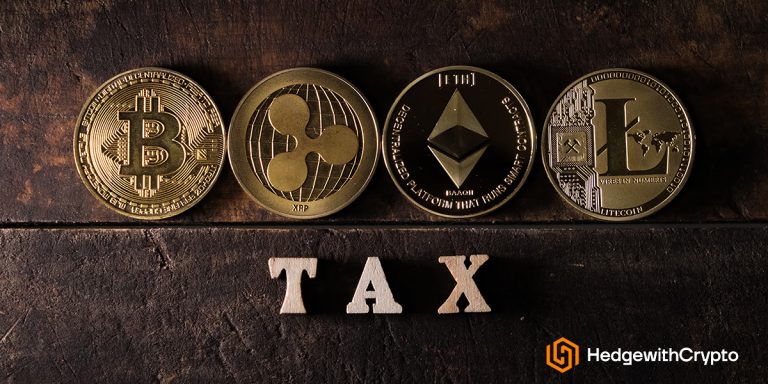The Countries Where Bitcoin Is Legal and Illegal
Hedge With Crypto aims to publish information that is factual and accurate as of the date of publication.
TABLE OF CONTENTS
As Bitcoin is not issued by any government or any central bank, the way through which governments choose whether to accept or limit the use of Bitcoin can cause a great deal of controversy. Governments don't lack the means to control a decentralized currency; however, they have a hard time tackling and subjugating the network expansion process.
Here's What It Means By Legal And Illegal
Legality entails a set of rules following the law, while illegality is against the law. As Bitcoin does not belong to any system, in its current state, it is not legal nor illegal. Nevertheless, cryptocurrency regulation is a topic on most governments' agendas because it requires multiple sectors to create laws and regulations to help determine its status.
Bitcoin's network effect and price growth have gained the attention of governments since 2014 or even sooner. Moreover, as a speculative asset, Bitcoin behaves similarly to the stock market. As a result, governments can benefit from capital gains taxation, a standard introduced by many countries, including the U.S., which has between 10% to 37% short-term capital gains taxes.
Governments can enforce cryptocurrency laws on exchange platforms or prohibit financial institutions from transacting or accepting any crypto payment. Regardless, the open nature of the Internet and Bitcoin's decentralized status make it impossible to fully enforce regulation.
There Are Differences In Bitcoin Legality
In the case of Bitcoin, legality is defined by the extent to which Bitcoin can be used freely, without any limitations or constraints. Each country defines the legal status of Bitcoin, and its legal status is determined by how the law is stated, and whether it is included in the current financial system or defined outside of it. Thus, this article considers Bitcoin legal if people can transact it freely despite Central Banks trying to restrict access to digital assets.
Countries That Legally Support Bitcoin
As Bitcoin gains widespread attention from both popular and institutional investors, nation-states are expected to create legal frameworks through which financial entities can operate and offer services to their clients. As a result, Bitcoin's legality is more often than not tied to the extent to which individuals can buy Bitcoin using exchanges and accepted by financial institutions.
1. United States
Bitcoin is partly regulated in the United States and is a taxable commodity according to the IRS. Exchanges and financial services that offer cryptocurrency services need to register with the SEC. The 2021 Infrastructure Bill also mentions digital assets such as Bitcoin and aims to increase financial tracking to prevent money laundering.
Several states are warming up towards Bitcoin and other cryptocurrencies as they recognize the benefits of the yearly taxation turnover. For example, Texas is incentivizing Bitcoin mining after the Chinese mining exodus. Additionally, Wyoming is developing cryptocurrency-friendly state regulations to promote innovation, such as establishing DAOs and offering banking licenses to cryptocurrency exchanges in the USA.
While the current posture of Bitcoin is positive, it cannot be 100% ruled out that this may change in the future. An uncertain global outlook can swiftly change the Government's perception and impose tough restrictions to ban Bitcoin in the US.
2. Canada
Bitcoin is regulated in Canada, and policymakers are working with Canadian exchanges and crypto service providers to create better legal frameworks for users. Regulators' relaxed outlooks offer mainstream investors better exposure to cryptocurrency assets while also approving digital exchange-traded funds (ETF), which was unprecedented for any other nation-state.
According to the Canada Revenue Agency, Bitcoin and digital assets are cataloged as a commodity in Canada, which has prevented the unfavorable misreporting of taxes. Additionally, profit generated from cryptocurrencies needs to be declared and taxed as Capital Gains tax.
3. United Kingdom
There are no specific laws in the United Kingdom that define digital assets as legal and integrated into the financial sector. Nonetheless, the UK had defined Bitcoin as property without applying additional regulatory measures.
Crypto exchanges in the U.K. have to register with the FCA and are subject to AML laws. After leaving the European Union, the U.K. has created its financial framework; however, no plans exist to regulate cryptocurrencies. Thus, owning and transacting Bitcoin individuals is not restricted; however, banks can implement their terms.
4. European Union
Cryptocurrencies in the European Union are legal. Individuals are allowed to own Bitcoin, transact it, and store it. However, each country imposes its laws regarding taxation and capital gains tax. In addition, the E.U is exploring additional regulatory measures for money laundering and anti-terrorism laws, meaning exchanges that operate in the E.U must conduct CDD/KYC on customers to meet the regimentations.
5. Japan
Bitcoin is regulated and included in the law in Japan and has certain characteristics that define its use cases. For example, Japan has no capital gains tax regardless of the length of time the asset is kept in digital form. Instead, taxes are involved only when a purchase is converted into fiat and generates profit.
As Bitcoin is included in a specific asset class within the law, cryptocurrency exchanges that operate in the country need to follow regulatory input, including delisting unapproved assets such as Monero from their holdings.
6. India
Bitcoin is legal in India; however, cryptocurrencies are not highly regulated, which limits investor protection against fraudulent actions and crypto exchange hacks. Moreover, there are no rules on crypto taxation in the country as RBI does not recognize the currency as legal tender.
India's Supreme Court March 2020 resolution on the RBI case reinforced Bitcoin's status in the country after RBI could no longer enforce restrictions on RBI clients for conducting transactions with cryptocurrency entities. In 2021, India proposed to apply a Bitcoin ban in the country as it seeks to develop government back digital currencies. However, there is no clear definition of what the ban could entail.
7. Australia
In 2017, the Australian government declared cryptocurrencies legal in Australia to invest in. This includes mining Bitcoin and trading on platforms. However, the Government increased its integration efforts into the financial circuit. However, their legality entails those using and transacting Bitcoin are subject to the Anti-Money Laundering and Counter-Terrorism Financing Act 2006. Additionally, cryptocurrencies incur a capital gain tax as they are interpreted as property.
Accepting Bitcoin and other cryptocurrencies comes at a cost, as the government can issue new laws, forcing exchanges to take preventive actions. In 2020, regulators forced cryptocurrency exchanges in Australia to delist privacy coins from their holdings.
8. Brazil
Bitcoin in Brazil is an unregulated asset. Individuals can own it and transact using it without any guarantee or protection from the government. However, although it is not regulated, in 2019, the Special Department of Federal Revenue of Brazil published a document listing a series of rules regarding crypto taxation. As of June 2021, a new bill was added to regulate cryptocurrencies in the country. If approved, the government will have 180 days to divide and create a concise framework to regulate crypto transactions.
9. Argentina
Bitcoin is considered legal in Argentina, and the government has issued rules and laws regarding taxation and the prevention of money laundering in the country. While the Argentinian government is not directing exchanges or individuals on how to act in the market, it is observing and planning to create a new bill based on its findings.
As of August 2021, the current president of Argentina, Alberto Fernandez, suggested he might be inclined to adopt Bitcoin as legal tender in the country. However, to this date, the president did not take further action.
10. South Africa
Cryptocurrencies are intangible assets in South Africa as of 2014; however, the country wants to increase crypto regulation and embrace cryptocurrencies. Owning and transacting cryptocurrencies in South Africa using an exchange is not illegal and is not fully regulated. Specifically, South Africa wants to increase regulation to avoid using Bitcoin for criminal activities and guard against money laundering and terrorism. The South African Reserve Bank plans to limit banks' exposure to crypto-assets as they can create financial instability in the long run.
11. Nigeria
Nigeria has become silent regarding regulating and making Bitcoin legal or illegal. While owning and transacting Bitcoin is not a criminal offense, Nigeria's Central bank issued a document reaffirming its stance on Bitcoin financial transactions. Specifically, dealing with and facilitating payments by banks will attract penalties. The Central Bank of Nigeria also directed all banks to find clients dealing with cryptocurrencies or crypto exchanges and banning or canceling their accounts. Despite the banking ban, Bitcoin usage within Nigeria is still on the increase.
Countries Where Bitcoin Is Legally Accepted
1. El Salvador
El Salvador is the only country that made history after it embraced Bitcoin as a legal tender. This creates more avenues for Bitcoin to increase mass exposure, as companies such as McDonalds are obligated to accept Bitcoin as payment. The Bitcoin Law was passed on June 8th, 2021, and fully into effect after September 7th, 2021.
2. Ukraine (pending)
Ukraine is the second country that plans to make Bitcoin a legal tender. In September 2021, the parliament voted to legalize Bitcoin. President Zelensky intends to create a dual currency system similar to El Salvador and create a crypto mecca by 2023. Moreover, Ukraine plans to make bitcoin mining a new reality, using green mining through nuclear power sources.
Countries That Have Banned Crypto
1. Bolivia
In 2014, Bolivia issued a decree banning unregulated digital assets, including Bitcoin.
2. Indonesia
Bitcoin has been banned as a transaction tool as of January 2018 in Indonesia. Individuals can purchase and hold Bitcoin and other digital assets, but they cannot use it to pay for goods and services within the country.
3. Morocco
Bitcoin purchases are banned from Morocco starting November 2017. Furthermore, Morocco's Foreign Exchange Office announced that any divergences from the law violate the foreign exchange regulations and are punishable with fines. Still, data shows that Bitcoin transactions on LocalBitcoins are gaining momentum despite the imposed ban.
4. Algeria
In 2018, holding, owning, using, and transacting Bitcoin and other digital assets were made illegal. According to Financial Law, any violation of this provision is punishable in law according to the country's regulations.
5. Egypt
Bitcoin is prohibited in Egypt, where the Egyptian Central Bank issued a statement claiming that issuing, promoting, transacting, and creating a platform designed to transact Bitcoin are forbidden. On March 28th, the Central Bank reiterated that Egypt works only with currencies approved by the bank to diminish Bitcoin investments. Those in violation of Article 206 of the Banking System Law are subjected to prison or fines of up to 10 million Egyptian pounds.
6. Vietnam
Vietnam has banned the use of Bitcoin and other digital assets as a payment tool in the country. Individuals and businesses caught transacting Bitcoin can be fined up to 200 million VND. However, Bitcoin can be transacted as a virtual good or digital asset, meaning individuals can trade it on any open exchange. In 2021, Vietnam's Ministry of Finance appointed a workgroup to research a mechanism for integrating and accepting Bitcoin.
The US Government Is Unlikely To Ban Bitcoin
It is unlikely that the US government will stand against Bitcoin. The coin is now integrated and used by merchants and institutions overseeing billions within the US economy. The US also leads Bitcoin mining efforts globally. However, it is important to realize there could be a string of events that unfold that lead the US government to change its current position and could lead to an outright ban. Although, there have been reports the Government has been attempting to quietly ban Bitcoin through indirect means.
A Government Can't Shut Down Bitcoin
No, the Bitcoin blockchain can never be shut down by a single government. Bitcoin is run by a collective rather than a single central authority, it is impossible for one, or even several, governments to target and stop the activities of thousands of nodes that make up the Bitcoin network. For governments or central banks to truly shut down Bitcoin, the government in question would need to shut down and target over 1 million mining operations worldwide.
Alongside the sheer effort this would take, each node can be located in any jurisdiction in the world – making the task simply unfeasible. Websites such as Bitnodes.io can be used to constantly check that the decentralized distribution of Bitcoin miners remains secure.
If They Can't Shut Down Bitcoin, Can a Government Ban Bitcoin?
While shutting down Bitcoin is out of the question, governments can attempt to implement a country-wide ban by imposing tough legal or regulatory measures on Bitcoin-related activities, such as mining, trading, or holding Bitcoin. Additionally, they can even attempt to block and shut down crypto exchanges or websites that allow for the distribution of BTC. As past attempts have shown, an outright ban on Bitcoin is tricky.
The US Government's Current Position on Bitcoin
Fortunately for US residents, Bitcoin is not banned and has never been banned in the US. There has also never been any expression from the US government that a ban on Bitcoin would be necessary. However, this doesn’t mean there haven’t been problems for Bitcoin in one of the largest economies in the world. The US government has always taken a firm regulatory approach to Bitcoin. US officials recognize it as a legitimate asset class and digital currency, but as a result of its partial use in illicit activities, it has taken many years to sure up that view.
There is a constant ongoing battle between multiple US government bodies over who should take charge of regulating cryptocurrencies. Unfortunately, this has resulted in a slow uptake of crypto regulation, which isn’t great for an industry that has moved at light speed.
Possible Reasons The Government Could Ban Bitcoin In the US
US officials who are anti-crypto will provide a long list of reasons why the US government should restrict the world’s leading coin. Here are some of the most prominent reasons the Government could implement a Bitcoin ban:
- Implementing regulations. The Government could make it difficult to buy and sell Bitcoin by implementing new laws and regulations to outlaw its use. This could entail making it illegal to be involved with Bitcoin activities within the country. As an example, in 2013, the People's Bank of China banned the country’s financial system from interacting with Bitcoin. Subsequent restrictions in 2017 on ICOs, in 2019 on Bitcoin mining, and in 2021 on crypto trading followed.
- New criminal legislation. In addition to regulations, the US could also try to introduce legislation to deem the use of Bitcoin as criminal activity. In 2018, the Indian government tried to do exactly that. Indian officials proposed a new bill that stated anyone found using cryptocurrencies would be handed a prison sentence of up to 10 years. Luckily for crypt investors based in India, it was never passed into law.
- Blocking access. Instead of targeting law and legislation, the US government could simply try to block access to Bitcoin and US-based crypto exchanges, preventing citizens from purchasing or trading the cryptocurrency. In 2019, the Reserve Bank of India (RBI) tried to do something very similar. By banning access to Bitcoin exchanges, the RBI prevented Indian citizens from purchasing or selling Bitcoin using national fiat currencies. However, in March 2020, the Indian Supreme Court overturned the RBI's ban.
- Technical measures. To support regulation and legislation, the US could implement technical measures to block Bitcoin-related websites, including technologies such as VPNs. In 2017, the Russian government blocked access to several Bitcoin-related websites, including the popular exchange BTC-e. The government claimed that the websites were being used to facilitate illegal activities.
Ways The The US Government Might Ban Bitcoin
While it’s not technically possible for the US government to completely remove Bitcoin, there are still several ways that the country could try to restrict access to the world’s leading crypto. Here are 4 ways the US Government could ban Bitcoin. - Implementing strict regulations. The first way would be to implement new laws and regulations to outlaw its use or impose strict KYC requirements on crypto that prohibit investment from individuals. One example of a country that has implemented laws to accelerate a Bitcoin ban is China. In 2013, the People's Bank of China banned the country’s financial system from interacting with Bitcoin. This was followed by subsequent restrictions in 2017 on ICOs, in 2019 on Bitcoin mining, and in 2021 on crypto trading.
- New criminal legislation. Alongside regulations, the US could also try to introduce legislation to deter the criminal use of Bitcoin. In 2018, the Indian government tried to do exactly that. Indian officials proposed a new bill that stated anyone to be found using cryptocurrencies would be handed a prison sentence of up to 10 years. Luckily for crypto investors based in India, it was never passed into law.
- Blocking access. Instead of targeting law and legislation, the US government could simply try to block access to Bitcoin and US-based crypto exchanges, preventing citizens from purchasing or trading the cryptocurrency. In 2019, the Reserve Bank of India (RBI) tried to do something very similar. By banning access to Bitcoin exchanges, the RBI prevented Indian citizens from purchasing or selling Bitcoin using national fiat currencies. However, in March 2020, the Indian Supreme Court overturned the RBI's ban.
- Technical measures. Finally, the US could try to impose technical measures to block Bitcoin-related websites, including technologies such as VPNs. In 2017, the Russian government blocked access to several Bitcoin-related websites, including the popular exchange BTC-e. The government claimed that the websites were being used to facilitate illegal activities.




